Description
ABSTRACT
Expanding the Frontiers of Corporate Environmental Liability: The Case of Okpabi v Royal Dutch Shell Plc
Similoluwa Daramola*
This analysis considers the implications of Okpabi v Royal Dutch Shell Plc (2021) UKSC 3 and its findings on the concept of parent company liability under the common law duty of care. The case expands the frontiers of corporate environmental liability in terms of holding parent multinational companies liable for the environmental activities of their subsidiary companies in other parts of the world. This decision is a landmark in promoting the environmental goals of the United Nations in developing countries like Nigeria, where multinational companies often maintain low standards of operations due to the absence of good governance, among other factors. This paper analyses the court’s reasoning in the arrival of the decision and, much more broadly, its implications for Nigeria.
Keywords: Environmental Sustainability, Corporate Governance, Okpabi v Royal Dutch Shell Plc, Parent Company Liability.
INTRODUCTION
Environmental sustainability is at the epicentre of the Sustainable Development Goals of the United Nations due to the impact human and corporate activities are having daily on the environment. While it is easy to hold a natural person liable for acts and omissions that violate the law’s provisions, in the corporate enclave, the liability of juristic entities is imputed on directors who are deemed to be the alter ego and directing mind of the company. The liability of corporate entities is such that corporate entities are liable for direct acts and omissions that breach the law. This position of law which seems settled, however, seems to take a different perspective in the case of parent and subsidiary companies because if the position of the law in the age-long case of Salomon v Salomon & Co Ltd1 on the corporate personality of companies is to be relied upon, the parent multinational companies that are deemed to hold supervisory roles over their subsidiary companies should not be held liable for the environmental degradation caused by their subsidiaries.
The case of Okpabi v Royal Dutch Shell Plc2 is an expansion of the concept of corporate liability as it is anchored on the trite obligation of companies to ensure that in line with the tenets of sound corporate governance practices, their activities are geared towards maximum ethical responsibility and accountability and in line with the Triple Bottom Line Reporting that recognises
environmental, social, and economic positions of companies.
* LL.B (Bowen University, Nigeria), BL(Nigerian Law School, Lagos Campus), Associate, Chartered Institute of Arbitrators (ACIArb) (UK). Email: si****************@***il.com.
- [1896] UKHL 1.
- [2021] UKSC 3.

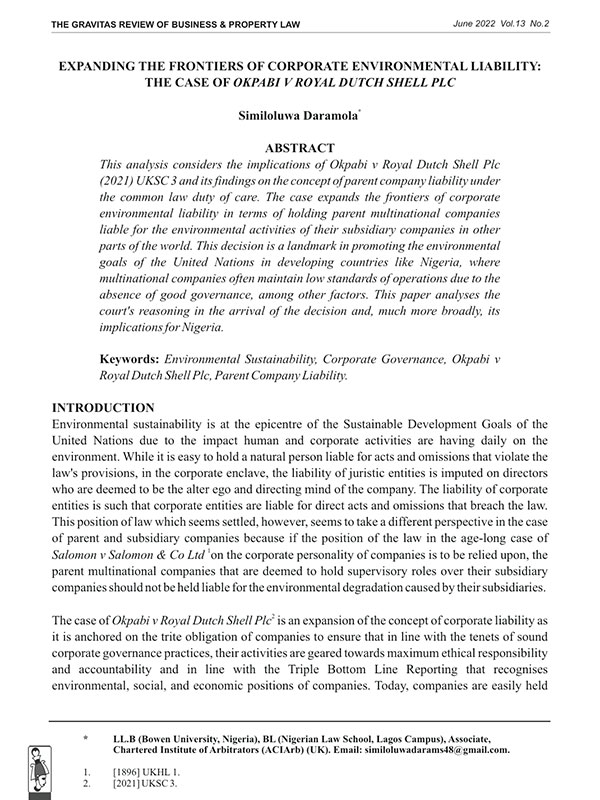
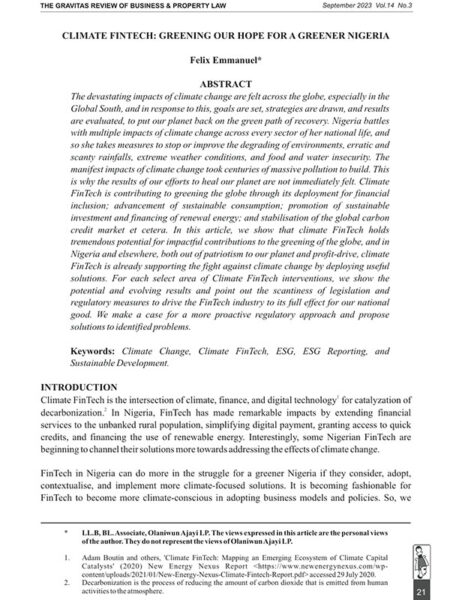
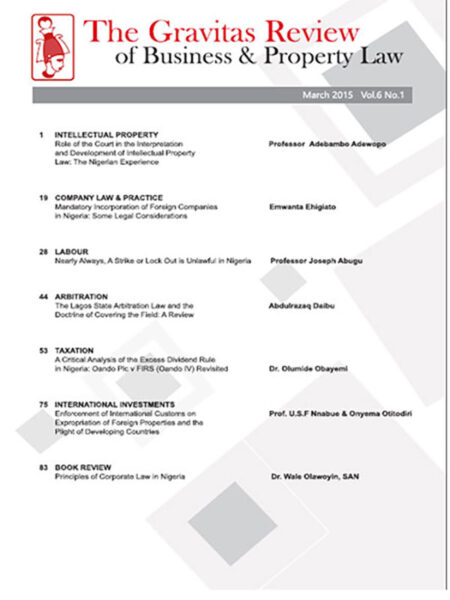
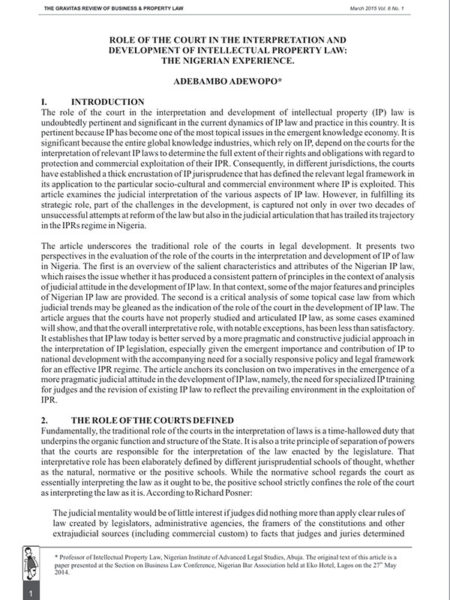
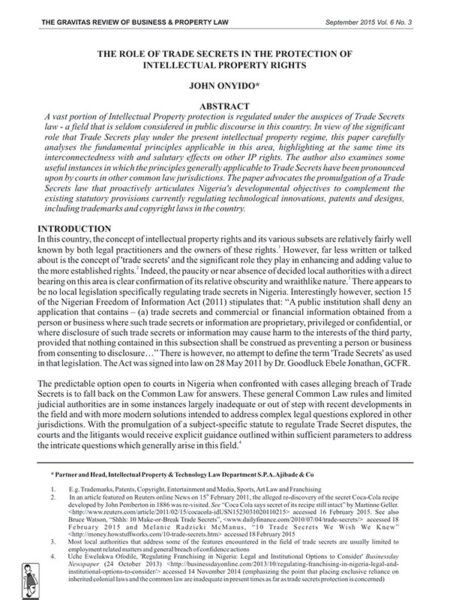


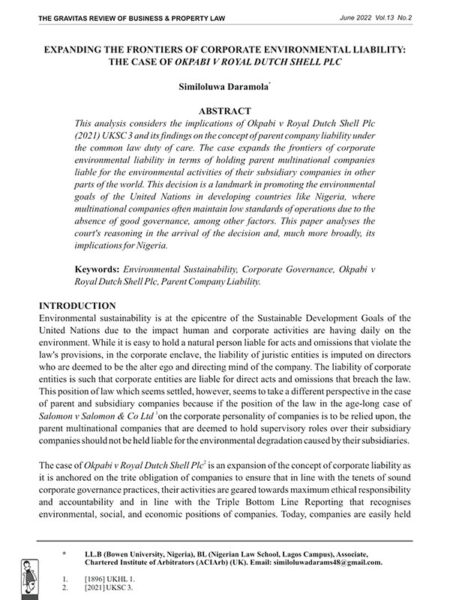
Reviews
There are no reviews yet.